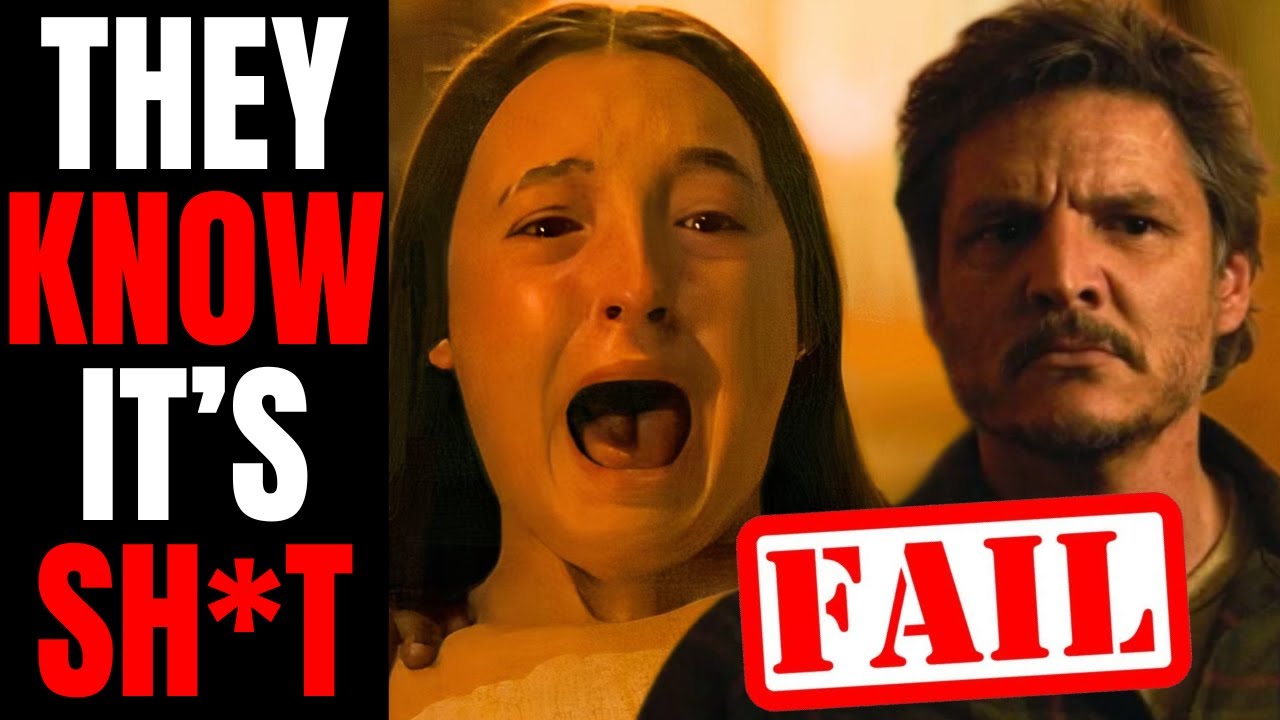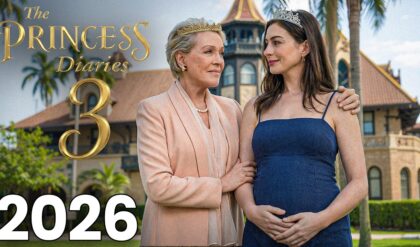The Last of Us Season 2: A TOTAL Flop? 😱
Creator Craig Mazin admits they “f**ked up.”
Fans are raging, scores are tanking.
What went wrong with HBO’s hit?
Find out the shocking truth—click now! 👇

The Last of Us Season 2: Did Craig Mazin Really Call It a “Total Disaster”?
The second season of HBO’s The Last of Us, which aired from April 13 to May 25, 2025, was anticipated as a continuation of the Emmy-winning triumph of Season 1. Adapted from Naughty Dog’s polarizing 2020 game The Last of Us Part II, the season followed Ellie (Bella Ramsey) and Joel (Pedro Pascal) five years after their cross-country journey, now settled in Jackson, Wyoming. However, the season’s reception has been divisive, with a 37% audience score on Rotten Tomatoes and a 55% drop in finale viewership compared to Season 1. X posts, like @DavidHarvey_SC’s claim that creator Craig Mazin admitted Season 2 was a “TOTAL DISASTER,” amplify a narrative of failure. Mazin’s actual comments, reported by ScreenRant, are more nuanced, acknowledging “mistakes” and “lessons learned.” This article examines Mazin’s statements, the season’s reception, and the broader context of its challenges, drawing on reports and critical analysis.
Mazin’s Comments: Admission of Failure or Measured Reflection?
The “total disaster” narrative stems from Mazin’s candid remarks in a Scriptnotes podcast interview, as reported by Variety and ScreenRant on June 7, 2025. Reflecting on Season 2’s challenges, Mazin said, “The second season comes with so many expectations, and we did learn a lot of lessons. And the problem with learning lessons is then you have to be accountable to those lessons. … We kind of f**ked ourselves.” X posts, such as @DomTheBombYT and @VHSDVDBLURAY4K, seized on this, framing it as an admission of catastrophic failure. However, Mazin’s full context reveals a more balanced perspective: he acknowledged heightened pressure after Season 1’s 96% Rotten Tomatoes score and 8 Emmy wins, emphasizing the difficulty of meeting expectations while surprising audiences.
Mazin’s “f**ked ourselves” quip refers to raising the bar for video game adaptations, previously a low-prestige genre. He noted Season 1 benefited from modest expectations, but Season 2 faced scrutiny as a cultural juggernaut. His mention of “mistakes” and “lessons” suggests accountability, not a declaration of disaster. Co-creator Neil Druckmann, in a June 5, 2025, GameRant interview, defended creative choices like the Seraphite island scene, indicating confidence despite fan division. The “total disaster” label, while catchy, exaggerates Mazin’s self-critique, driven by sensational X posts and YouTube videos like “The Last of Us Creator ADMITS Season 2 Was A DISASTER” (June 14, 2025).
Season 2’s Reception: A Polarized Response
Season 2’s critical and audience reception paints a complex picture. Critics largely praised the season, awarding it a 92% Rotten Tomatoes score and a 91/100 on Metacritic, lauding its action, performances, and production design. Radio Times’ Louise Griffin called its storytelling “unrivalled,” while /Film’s Mathai noted scenes gained depth on rewatches. Isabela Merced’s Dina and Kaitlyn Dever’s Abby earned particular acclaim for their emotional depth, per Inverse. However, some critics, like Total Film’s Lauren Milici, felt it lacked the game’s emotional weight, and IGN’s Simon Cardy questioned whether the game’s interactivity made it more engaging.
Audience reactions were far harsher, with a 37% Rotten Tomatoes Popcornmeter score reflecting significant backlash. The finale, “Convergence,” drew 3.7 million viewers, a 30% drop from the premiere’s 5.3 million and 55% less than Season 1’s finale, which HBO attributed to Memorial Day weekend, per The Hollywood Reporter. X posts, like @Vara_Dark’s claim of scores tanking to 54% and HBO “hiding” reviews, suggest review-bombing, particularly over Joel’s reduced role and progressive themes like Ellie’s lesbian relationship with Dina. Reddit’s r/TheLastOfUs2 labeled the season “hyper-feminized” and a “teen drama,” echoing 2020 game controversies over its diverse cast.
Despite the drop, Season 2 averaged 37 million global viewers per episode, surpassing Season 1’s 32 million, with over 90 million total viewers since Season 1’s finale, per Wikipedia. Game sales also spiked, with Part II Remastered and Part I ranking as top PS5 sellers on Amazon post-finale, indicating sustained interest. The polarized response mirrors the game’s 2020 reception, where bigoted attacks on diversity coexisted with praise for its ambition, per Polygon.
What Went Wrong? Key Criticisms
Several factors contributed to Season 2’s divisive reception:
Narrative Shocks and Pacing: Joel’s early death in episode 2, a faithful adaptation of the game, shocked non-gamers, prompting some to abandon the show, per ScreenRant’s non-gamer reviewer. The seven-episode season, compared to Season 1’s nine, felt rushed, with TIME criticizing its “stretched too thin” story. The finale’s cliffhanger, leaving Ellie and Abby’s fates unclear, frustrated viewers expecting resolution, as noted in People’s May 26, 2025, recap.
Shift in Focus: Season 2 prioritized Ellie’s revenge quest over Joel-Ellie bonding, disappointing fans of their Season 1 chemistry, per Aftermath. New characters like Abby, Isaac (Jeffrey Wright), and Dina took significant screen time, with some, like Inverse’s Valerie Ettenhofer, finding their development “minimal” or “artificial.” FandomWire’s May 27, 2025, article argued Ellie’s failure to save Mel’s baby highlighted her lack of Joel’s willpower, alienating viewers who saw her as “dumbed down.”
Cultural Backlash: The season’s focus on Ellie’s relationship with Dina and Abby’s complex morality sparked accusations of “woke” pandering, similar to the game’s 2020 discourse. X posts and r/TheLastOfUs2 comments labeled it a “teenage dyke drama,” with homophobic review-bombing noted by Out.com. This mirrors broader gaming controversies, like Dragon Age: The Veilguard’s diversity backlash, per previous analyses.
Incomplete Story: Adapting only the first half of Part II, Season 2 ends mid-story, with Abby’s perspective set for Season 3, per Variety. ScreenRant’s June 3, 2025, review called this “unsatisfying,” arguing a focus on Ellie and Dina’s perspective, saving WLF/Seraphite details for Season 3, could have strengthened the narrative. Mazin and Druckmann’s plan for a four-season arc, per ScreenRant, risks losing viewers if Season 3 doesn’t deliver.
Mazin and Druckmann’s Vision: Bold or Misguided?
Mazin and Druckmann defended their approach, emphasizing fidelity to Part II’s provocative themes of revenge and empathy. In a March 6, 2025, Variety interview, they acknowledged the game’s divisive 2020 reception but argued its “tectonic shifts” demanded a multi-season adaptation. Mazin, inspired by Game of Thrones’ “Hardhome,” aimed for emotionally resonant action, per The Hollywood Reporter. Druckmann, in a May 28, 2025, GamesRadar interview, promised unanswered questions—like the WLF-Seraphite conflict—would resolve in Season 3, urging patience.
Critics like Rolling Stone noted Season 2’s changes, such as reduced Joel-Ellie screen time and Abby’s less muscular physique, aimed to fit TV’s medium but alienated some fans. Mazin’s “Empire Strikes Back” comparison, per The Hollywood Reporter, framed Season 2 as a darker, tougher act, but the execution—rushed pacing, incomplete arcs—drew comparisons to Game of Thrones’ divisive later seasons, per The Hollywood Reporter’s June 13, 2025, analysis.
Industry Context: The Pressure of Adaptation
Season 2’s struggles reflect broader challenges for video game adaptations. Season 1’s success, with 32 million viewers and 24 Emmy nominations, set an unattainable bar, per Variety. Other adaptations, like Halo and Resident Evil, faltered when deviating from source material, while The Last of Us faced backlash for fidelity to a polarizing game. The 2023 WGA/SAG-AFTRA strikes, which delayed production, and HBO’s cost-cutting post-House of the Dragon success may have constrained resources, though unconfirmed.
The season’s viewership drop, from 5.3 million premiere viewers to 3.7 million for the finale, raises concerns about Season 3’s viability, with ScreenRant’s May 30, 2025, article questioning the four-season plan. Yet, HBO’s early Season 3 renewal and game sales spikes suggest confidence in the franchise’s longevity.
Can Season 3 Recover?
Mazin’s accountability, per ScreenRant, offers hope. Season 3, focusing on Abby’s Seattle arc, could address pacing issues and deepen her character, potentially winning back viewers, per Variety. Druckmann’s defense of creative risks, like the Seraphite scene, indicates a commitment to the game’s vision, but HBO may need to adjust marketing to manage expectations, emphasizing Season 2 as “part 1” of a larger story.
Fan trust is critical. The backlash, fueled by X posts and Reddit, mirrors Game of Thrones’ final season, where narrative choices alienated viewers. HBO’s attribution of low finale viewership to Memorial Day, per Wikipedia, feels dismissive, and addressing fan concerns—like Joel’s absence or Ellie’s arc—will be key. With Ramsey, Dever, and Wright returning, Season 3 has the talent to rebound if it balances fidelity with TV-friendly storytelling.
Conclusion: Disaster or Growing Pains?
Craig Mazin didn’t call Season 2 a “total disaster” but acknowledged its flaws, reflecting on the pressure to follow Season 1’s success. The season’s 92% critic score contrasts with a 37% audience score, revealing a divide between artistic ambition and viewer expectations. Joel’s death, rushed pacing, and an incomplete story fueled backlash, amplified by X posts and YouTube hyperbole, but strong global viewership (37 million per episode) and game sales suggest enduring appeal.
The Last of Us Season 2 isn’t a disaster but a bold, flawed chapter in a complex adaptation. Mazin and Druckmann’s willingness to take risks, while divisive, keeps the show compelling. Season 3’s success hinges on resolving cliffhangers and rebuilding trust, proving whether this was a stumble or a fatal misstep. For now, the “disaster” label is an overreach, but HBO must heed the lessons Mazin already recognizes to ensure the series’ legacy endures.





